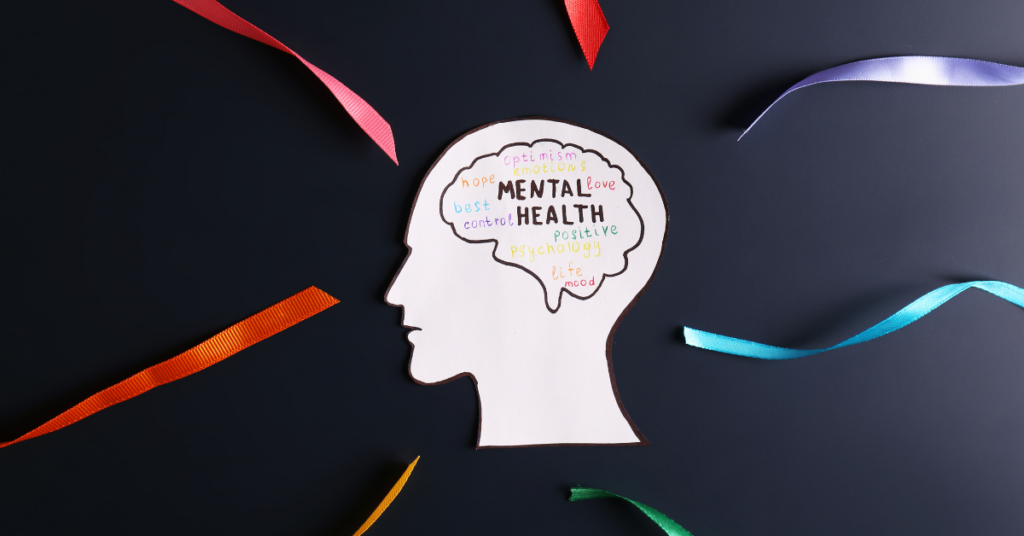Resilience is one of the most essential skills for navigating life’s ups and downs. It’s the ability to bounce back from setbacks, adapt to challenges, and face difficulties with mental strength. In a world that’s constantly changing, resilience is a powerful asset for maintaining balance, managing stress, and promoting personal growth.
This article explores the concept of resilience, its benefits, and practical techniques you can apply to build mental toughness in everyday life. By developing resilience, you can approach life’s challenges with a more positive mindset, improving your overall well-being.
What is Resilience and Why is it Important?
Understanding Resilience
Resilience is defined as the ability to recover quickly from difficulties. It involves mental toughness and emotional stability, allowing you to remain calm and focused during challenging times. While resilience doesn’t prevent challenges from arising, it equips you to handle them effectively, helping you move forward even in difficult situations.
Mental toughness, on the other hand, refers to the inner strength and determination that help you stay motivated and focused. Together, resilience and mental toughness make it possible to maintain a positive attitude and avoid burnout, regardless of external circumstances.
To learn how to build resilience and cope effectively with life’s challenges, explore Resilience: Build Skills to EndureHardship from the Mayo Clinic. This guide provides practical strategies to strengthen emotional and mental endurance.
The Benefits of Mental Toughness
Mental toughness has numerous benefits for both personal and professional life. It aids in stress management by helping you stay composed and logical during challenging times, which can improve productivity, decision-making, and emotional stability. Additionally, resilience fosters a positive outlook, enabling you to view setbacks as opportunities for growth rather than obstacles.
By building resilience, you become better equipped to handle relationships, work demands, and personal goals with confidence and clarity, ultimately enhancing the quality of your life.

Common Traits of Resilient People
Resilient people tend to share several common traits, including optimism, adaptability, and perseverance. These qualities enable them to navigate life’s uncertainties with a constructive mindset. Optimism helps them stay hopeful, even when things get tough. Adaptability allows them to adjust to new situations with ease, while perseverance ensures they keep pushing forward, regardless of setbacks.
By cultivating these traits, anyone can develop resilience, making it possible to thrive under pressure and face life’s challenges with courage.
Practical Tips for Building Resilience
1. Practice Positive Self-Talk
The way we talk to ourselves greatly influences our mindset. Positive self-talk involves replacing negative or self-defeating thoughts with constructive affirmations. Instead of thinking, “I can’t handle this,” try shifting to “I can take things one step at a time.” Positive self-talk empowers you to approach situations with confidence and resilience.
To develop positive self-talk, start by noticing your thoughts. When you catch yourself being overly critical, reframe your thoughts in a supportive way. This simple shift can improve your mental toughness and resilience over time.
2. Embrace Challenges as Learning Opportunities
Challenges can be valuable learning experiences. When you view setbacks as opportunities for growth, you build resilience and become more adaptable. Each challenge becomes a stepping stone, strengthening your problem-solving abilities and teaching you how to manage stress effectively.
To embrace challenges, try reframing difficulties as chances to develop new skills or gain insights. This mindset helps you see adversity as a temporary phase, one that contributes to personal growth and resilience.
3. Develop Healthy Coping Mechanisms
Healthy coping mechanisms are essential for managing stress and building resilience. Examples include journaling, exercise, and practicing mindfulness. These activities help you process emotions constructively, reducing the impact of stress on your mental and physical health.
Experiment with different coping techniques to find what works best for you. Incorporating these practices into your daily routine provides a strong foundation for resilience, allowing you to handle stress with greater ease.
For expert advice on building resilience during challenging times, check out Resilience Strategies for the Pandemicfrom Yale Medicine. This article offers actionable tips to maintain mental health and adaptability in the face of adversity.

Building Resilience in Everyday Life
Strengthening Resilience Through Routine
Creating a stable routine provides structure and helps strengthen resilience. Consistent routines give a sense of control and stability, which can reduce stress during uncertain times. Incorporate small, positive habits like regular exercise, meditation, or a few minutes of daily reflection to build a resilient mindset.
Over time, routines become anchors that keep you grounded, helping you stay resilient regardless of external challenges.
Setting Realistic Goals and Celebrating Progress
Setting realistic, achievable goals keeps you motivated and helps build resilience. Breaking larger tasks into smaller goals makes them manageable, allowing you to focus on steady progress rather than immediate results. Celebrating small victories along the way boosts confidence and reinforces resilience.
By recognizing your progress, you’ll stay motivated and develop a positive outlook that strengthens mental toughness over time.
Learning to Accept and Embrace Change
Change is inevitable, and learning to accept it is a key part of building resilience. When you approach change with an open mind, it becomes easier to adapt and make the best of new situations. Practice viewing change as an opportunity for growth rather than a disruption.
Flexibility and adaptability are essential qualities of resilience, enabling you to handle life’s unexpected twists with a calm and confident approach.

Resilience and Relationships
Building Strong, Supportive Connections
A strong support system is essential for resilience. Connecting with friends, family, or mentors can provide encouragement and different perspectives when you face challenges. These connections offer emotional support, helping you feel less alone and more resilient during difficult times.
Make an effort to build and maintain supportive relationships, as they serve as a valuable source of strength and encouragement.
Practicing Empathy and Compassion
Empathy and compassion contribute to resilience by fostering understanding and reducing interpersonal conflict. When you practice empathy, you can better understand others’ experiences, creating a sense of connection and reducing stress in relationships. Compassion helps you respond to challenges with kindness and patience.
By cultivating empathy and compassion, you strengthen your resilience in relationships, helping you maintain supportive, healthy connections.
Balancing Independence and Support-Seeking
Resilience involves finding a balance between self-reliance and reaching out for help when needed. While independence is important, seeking support can provide valuable insights and comfort during challenging times. Learning when to lean on others and when to rely on yourself strengthens resilience.
Balancing these aspects helps you remain self-sufficient without feeling isolated, creating a well-rounded approach to resilience.
Overcoming Obstacles in Building Resilience
Handling Self-Doubt and Fear of Failure
Self-doubt and fear of failure can hinder resilience, but these feelings are natural. To overcome them, try reframing mistakes as learning experiences. Instead of viewing failure as a setback, consider it an opportunity to grow and improve. By adopting a growth mindset, you reduce the power of self-doubt and cultivate resilience.
Remember that resilience is not about avoiding mistakes but learning from them. Embrace each experience as a chance to build mental toughness.
For practical tips on overcoming challenges and building resilience, explore How to Overcome Obstacles in Your Lifefrom Kennedy Clubs. This guide provides insights into developing the mental strength needed to navigate life’s hurdles.
Staying Consistent and Patient with Progress
Building resilience takes time, and consistency is key. It’s normal to encounter setbacks, but patience and persistence help you stay on track. Remind yourself that resilience is a gradual process, and each step forward strengthens your mental toughness.
Stay committed to your resilience-building practices, and celebrate small improvements. Over time, these habits will lead to lasting change.
Dealing with Setbacks and Bouncing Back
Setbacks are part of life, and bouncing back is a skill that strengthens resilience. When faced with a setback, take time to process your emotions, then shift your focus to finding solutions. Instead of dwelling on the setback, view it as a learning opportunity.
This proactive approach helps you recover quickly and maintain confidence, allowing you to approach future challenges with resilience and optimism.

Long-Term Benefits of Resilience
Resilience for Improved Mental Health
Resilience supports mental health by reducing stress, anxiety, and the likelihood of burnout. When you develop resilience, you gain the tools to manage difficult emotions, which promotes long-term mental wellness. Resilience acts as a buffer, helping you cope with life’s pressures in a healthy, balanced way.
Increased Adaptability and Flexibility
Resilience enhances adaptability, making it easier to adjust to change without feeling overwhelmed. In a fast-paced world, flexibility is essential for maintaining mental clarity and focus. Resilient people can handle new situations with ease, which promotes confidence and a positive mindset.
Resilience as a Path to Personal Growth
Resilience fosters a growth mindset, helping you approach life as a continuous learning journey. Through resilience, you become open to new experiences, perspectives, and possibilities. This mindset not only enriches your life but also helps you reach your potential and build lasting mental strength.
Building resilience is an invaluable journey that enhances every aspect of life. By developing mental toughness, you equip yourself to handle challenges with confidence, grace, and optimism. Resilience isn’t about avoiding difficulties but learning to thrive despite them, turning each experience into an opportunity for growth.
Start incorporating resilience-building habits into your daily routine, and over time, you’ll enjoy the benefits of a stronger, more adaptable mindset. Embrace the journey, stay consistent, and remember that resilience is a lifelong skill that enriches both your mental and emotional well-being.
For quick and practical ways to enhance your mental clarity and well-being, explore our guide on 10 Minutes to BoostMental Health and Focus. Discover simple steps to feel more focused and balanced every day.




















